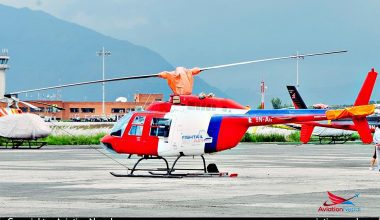Pursuing an aviation degree is a dream for many students fascinated by the wonder of flight and the dynamics of the aerospace industry. Colleges around the globe are offering comprehensive programs to prepare the next generation of pilots, aerospace engineers, and aviation managers. This article explores the facets of pursuing aviation degrees on college campuses, from the curriculum to career opportunities.

1. Diverse Aviation Programs Offered by Colleges
Colleges offering aviation degrees typically provide a range of programs catering to different aspects of the field. Students can choose from piloting, aviation management, aeronautical engineering, and aviation technology. Each program is designed to offer specialized knowledge – whether it’s learning the intricacies of aircraft design, understanding the nuances of aviation law and management, or acquiring the skills necessary for piloting. These programs combine theoretical knowledge with practical, hands-on training, which is crucial in the aviation industry. That said, getting into such a program is not easy. Students may need to submit quality admission essays to get accepted. If you need help with such papers, contact grabmyessay. They write stellar college papers for cheap.
2. State-of-the-Art Facilities and Equipment
To provide quality education in aviation, colleges invest in state-of-the-art facilities and equipment. This includes flight simulators, aircraft for training, advanced computer labs, and wind tunnels. These resources give students a realistic learning experience, preparing them for the challenges they will face in their careers. Access to the latest technology and equipment enhances the learning experience and keeps students abreast with current industry practices.
3. Rigorous Curriculum and Training
The curriculum for aviation programs is comprehensive and rigorous. It covers various topics, such as aerodynamics, navigation, meteorology, flight safety, and aircraft systems. It also teaches basic courses such as English, where you will practice your writing. You may think, why do pilots need writing? For a full answer, you are encouraged to see here. The training is intensive and requires a strong commitment from students. This includes accruing many flying hours and mastering various flying conditions for aspiring pilots. This means in-depth study and research in their specific areas for engineering and management students.

4. Industry Partnerships and Internship Opportunities
Many colleges partner with airlines, aerospace companies, and other industry players. These partnerships often provide students with internship opportunities, allowing them to gain real-world experience and make industry connections. Internships are a critical component of aviation education, as they allow students to apply their classroom knowledge in a professional setting and often lead to job opportunities post-graduation.
5. Certified and Experienced Instructors
The quality of instruction in aviation programs is paramount. Colleges employ certified and experienced instructors who have significant industry experience. These instructors bring valuable insights and practical knowledge to the classroom, offering students a more rounded education. Their guidance is crucial in preparing students for the demands and expectations of the aviation industry.
6. Career Opportunities in the Aviation Industry
Upon graduation, students with aviation degrees have many career paths. Pilots can work for commercial airlines, cargo companies, or in private aviation. Those specializing in aerospace engineering may find opportunities in aircraft manufacturing or space exploration. Aviation management graduates are well-suited for roles in airport management, aviation policy, and airline operations. The industry offers dynamic and rewarding career opportunities for well-prepared graduates.
Also Read: How to Choose the Best Destination for Pilot Training?
7. The Growing Demand for Aviation Professionals
The aviation industry is projected to grow in the coming years, driving demand for qualified aviation professionals. This growth is fueled by increasing air travel, advancements in aerospace technology, and the expansion of the global airline industry. As such, students with aviation degrees are entering a field with vast opportunities and growth potential.
8. Challenges and Responsibilities
Pursuing an aviation degree comes with its set of challenges and responsibilities. The field requires high precision, attention to detail, and safety consciousness. Students must be prepared to adhere to strict regulations and standards. The responsibility of ensuring passenger safety in piloting or designing safe and efficient aircraft in engineering cannot be understated.
In Conclusion
Pursuing an aviation degree on a college campus is an exciting and rewarding journey for those passionate about the field. With rigorous academic training, state-of-the-art facilities, and ample career opportunities, aviation programs prepare students to soar professionally. As the industry continues to grow and evolve, the demand for skilled aviation professionals is set to rise, making now an opportune time to embark on this educational path.






